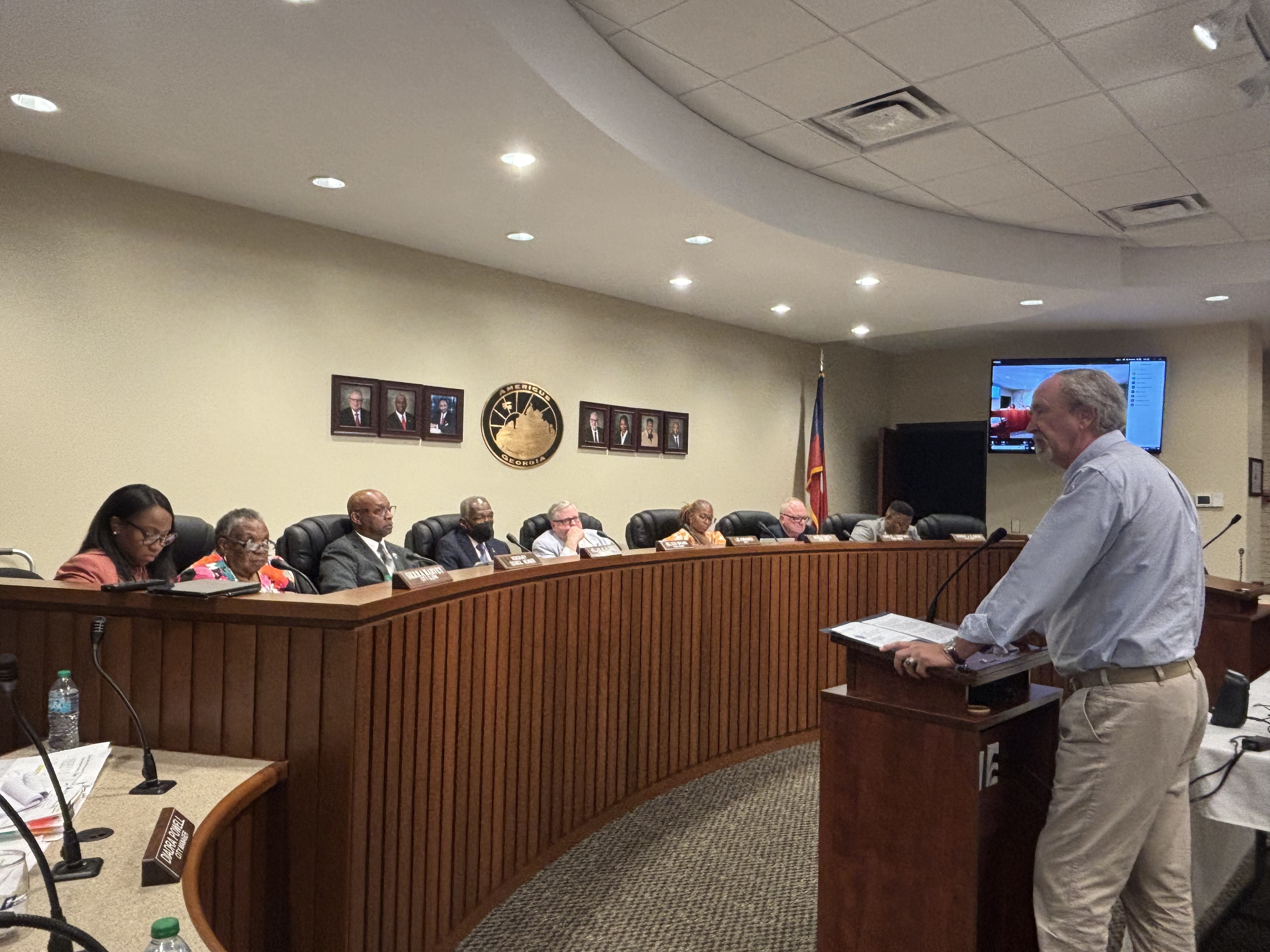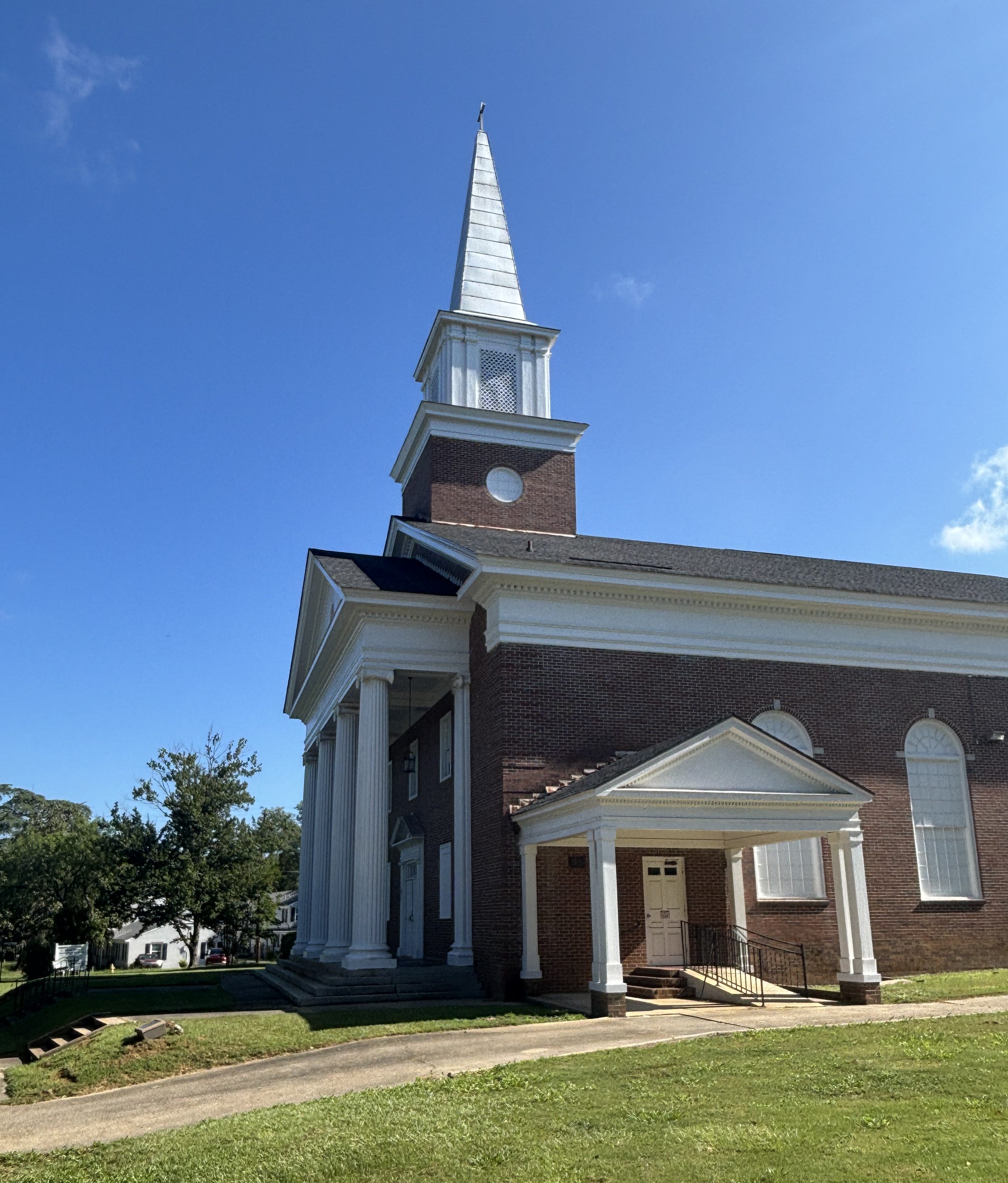Maranatha pastor Ashley Guthas seeks spiritual reconciliation amidst political division
Published 11:06 am Tuesday, July 29, 2025

- Maranatha Pastor Ashley Guthas.
As political division spreads across the nation, many churches are seeing a similar divide. As politics drives a wedge between friends and family, many denominations are splitting apart, often mirroring the fault lines in politics.
Maranatha Pastor Ashley Guthas has watched the situation play out in the church. “I definitely think the political divisions are significant within many churches, and I think they have absolutely been at play at Maranatha as well.”
Even after the election, the friction grows. “I’m typically an eternal optimist, and so I don’t tend to say things like, I see it getting worse, but I have seen where the divisions do seem to be getting wider and wider.”
Trending
As a pastor, Guthas has struggled to create healing between people who fall on different sides of these fractures. She is still trying to learn how to build bridges and foster spiritual unity, and expresses a commitment to getting people to see “one another for their heart, and not for anything else.”
Her task has been challenging. “In some circumstances, it’s . . . felt nearly impossible. And in other circumstances, I’ve watched beautiful doors be open to where people will look past the label to see the heart of the person.”
Guthas believes the growing division stems from an increased focus on identity. She believes that people need to loosen their grip on the labels they place on themselves and others.
One label that she believes is separating people from the teachings of Christ is that of immigrant. Guthas sees the growing anti-immigration sentiment as a threat to the spiritual health of the church. “When we blanket whole groups of people and demonize them or put them in categories that almost equate them to evil itself, and then we believe it, we’re not only harming these whole groups of people, we’re harming ourselves because we’re dividing humanity against humanity.”
She doesn’t believe caring for immigrants is a political stance, but a spiritual one, rooted in her desire to love as Jesus loves. “That’s a statement about, for me, what I have learned and continue to learn about the heart of God.”
Guthas believes that providing opportunities for people to meet who have different backgrounds helps break down the barriers. She gave an example from her own family. “I know that was really eye opening for my own parents to have the two refugee women come to Christmas with us and watch those two women interact with my children and listen to their stories, hear what they’ve been through, hear what it was like for them to grow up in Afghanistan.”
She isn’t sure whether the experience changed her parents’ beliefs, but views it as a start.
Trending
Recently another friendship presented her with an opportunity to build bridges. A Hindu friend made a donation to Maranatha Baptist Church. Guthas was struck by the willingness of a Hindu woman to give to a Baptist Church. She hopes that, if the church is willing, the donation will be used to start interfaith dialogue. “Maybe bringing a rabbi, bringing an Imam, bringing some different religious leaders from around to host conversations, hosting book clubs that dive into different things and building bridges together.”
When Jimmy Carter taught Sunday School at Maranatha, people from a variety of faiths visited, many drawn by his reputation as a peace-maker. Guthas still sees visitors come to Maranatha who don’t call themselves Christians, drawn by the warmth of their community.
Guthas doesn’t see it as the wrong reason for coming to church. “I would hope that people are coming for community and for curiosity and for a desire to learn more about the heart of God.”
She points to the four fragile freedoms of the Baptist faith as guide posts. “There’s religious freedom, there’s soul freedom, biblical freedom, and church freedom.”
Guthas’ gave her interpretation of religious freedom. “The religious freedom piece is built into the core of who we are, in that we’re open to accompanying people on their journey, to know God and to love God, and to love others.”
Guthas is not willing to judge how that freedom should be used. “It’s neat to see that people who come encounter God maybe in nature more than they do in the walls of a church, and so maybe they don’t come often, or they watch online, or those who have a Buddha in their homes, but still find some sense of connection to God within the walls of the church.”
Many Christians would express concerns of idolatry over statues depicting figures from different religions. Guthas is less concerned. “I don’t personally see having a statue of something in a home as idolatry, because I also see that many of us may wear a cross around our neck, or have it tattooed on our body, or wear our T-shirts, and yet our life reveals that our worship is to something totally different than to Jesus.”





